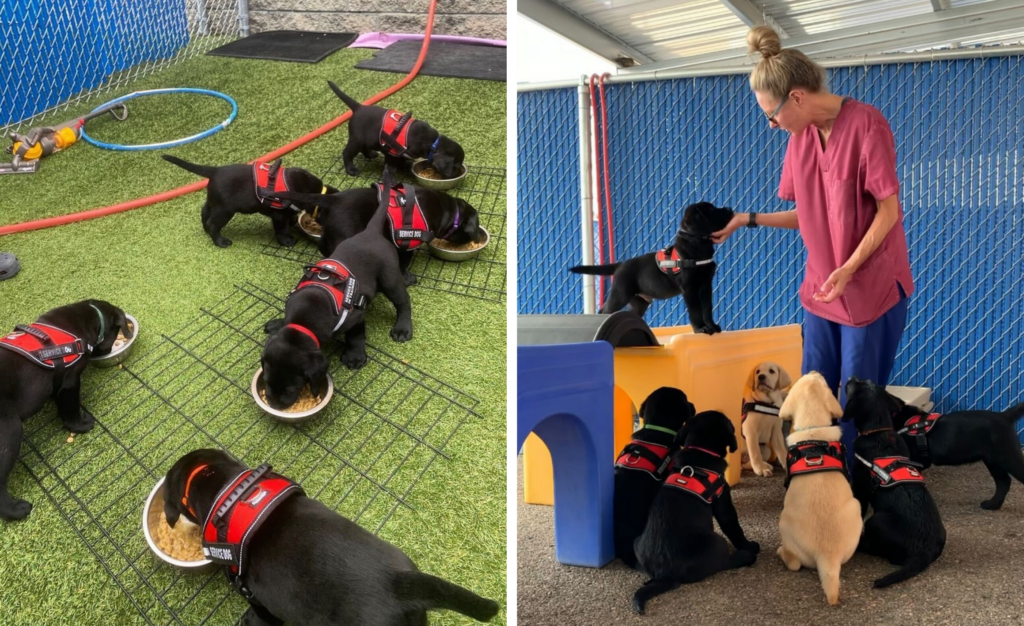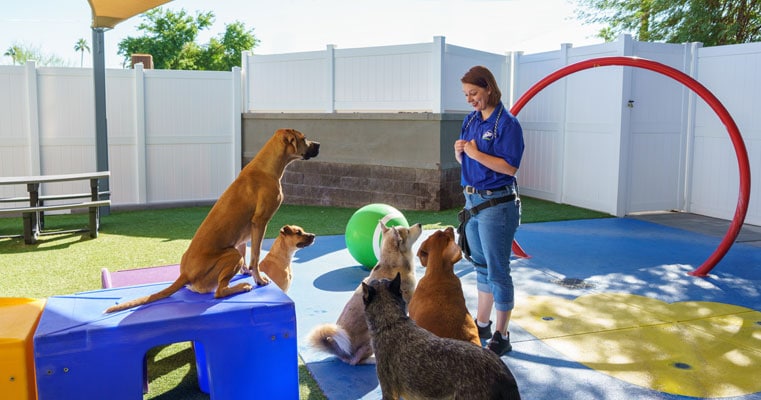Common Mistakes to Avoid During Dog Training for Better Results
Common Mistakes to Avoid During Dog Training for Better Results
Blog Article
Leading Canine Educating Strategies Every Owner Must Know

Favorable Support Strategies
Using favorable support strategies is vital for efficient pet dog training, as it cultivates a trusting bond in between the instructor and the dog. This technique concentrates on fulfilling desirable actions as opposed to penalizing undesirable ones, creating an environment for learning. Incentives can consist of deals with, appreciation, or play, which encourage pet dogs to duplicate the behaviors that gain them these rewards.

Additionally, this method improves the pet's enthusiasm for training sessions. They are extra involved and responsive when pets associate training with favorable experiences. Dog training. Beyond prompt actions adjustment, positive support encourages a joint connection in between the pet dog and instructor, decreasing stress and anxiety and concern
To maximize performance, it is critical to provide incentives quickly, ensuring the canine links the habits with the support. Basically, positive reinforcement strategies not only produce better-trained dogs yet also promote an unified collaboration in between pet and proprietor.
Remote Control Training Approach
The clicker training technique is an extremely effective technique that builds on the principles of positive reinforcement by adding an unique sound to mark wanted actions. This approach makes use of a small handheld tool that produces a clicking noise, enabling instructors to interact with their pets in a clear and immediate manner. When a pet dog executes a behavior that the proprietor wishes to motivate, the clicker is turned on, complied with by a benefit, normally in the type of deals with or praise.
The secret to effective clicker training depends on consistency and timing. It is critical to click at the exact moment the wanted behavior occurs, making sure that the pet links the audio with the action and the subsequent benefit. This approach not only enhances communication yet also fosters a more powerful bond between the owner and the dog, as it urges interaction and interaction during training sessions.
Remote control training can be related to a selection of commands and habits, from basic obedience to a lot more intricate tricks. Its adaptability and performance make it a popular method among professional fitness instructors and family pet owners alike, leading the way for a receptive and well-trained canine companion.
Leash Training Essentials
Effective chain training is crucial for ensuring a enjoyable and safe walking experience for both pets and their owners. Dog training. Leash training ought to start very early and be approached with perseverance and uniformity. Beginning by picking an ideal chain and collar or harness. A flat collar may function for some pets, while others may profit from a harness that lowers pulling.
Introduce your pet dog to the leash gradually, permitting them to explore it in a comfy environment. Method loose-leash strolling once they are accustomed. This includes rewarding your dog for walking beside you instead of pulling ahead. Use treats and praise to reinforce wanted behavior, and make sure to continue to be assertive and tranquil.
If your dog begins to draw, stop strolling right away. In addition, technique numerous walking settings to aid your pet adjust to diversions.
Routine method will certainly strengthen your pet's understanding of chain decorum. Bear in mind that leash training is an ongoing process; persistence and consistency will certainly generate the most effective outcomes, fostering a positive experience for both you and your canine buddy.
Socialization Methods
Socialization is a vital element of pet dog training that need to preferably start throughout puppyhood however can be beneficial at any type of age. Effective socializing assists dogs develop confidence and minimizes the possibility of behavioral issues. To execute successful socialization methods, subject your pet to a selection of environments, people, and various other animals.
Start with controlled setups, such as puppy classes or organized playgroups, where young pet dogs can interact safely. Slowly present your pet dog to new experiences, consisting of various sounds, surfaces, and tasks. Ensure these experiences are gratifying and positive to establish a feeling of security.
For grown-up pets or those lacking exposure, internet start with low-stress circumstances. Short, favorable interactions with calm pet dogs and friendly humans can create favorable associations. Utilize deals with and appreciation to enhance desirable behaviors throughout these experiences.

Uniformity and Persistence
Recognizing the value of uniformity and persistence in canine training is necessary for achieving long lasting results. Inconsistent training can lead to complication, making it hard for the pet dog to realize habits or commands, ultimately impeding development.
Moreover, persistence is a critical component of reliable training. Pets, like humans, learn at their own speed. Some might realize ideas promptly, while others might take longer. It is crucial for owners to stay supportive and calm, strengthening positive actions without resorting to stress or penalty. This fosters a trusting connection in between the canine and owner, encouraging a much more passionate and prepared learner.
To cultivate uniformity and patience, establish a regular training routine, utilize the exact same commands, and guarantee that all household participants use the same training concepts - Dog training. By doing so, you create a stable environment for finding out, permitting your pet dog to prosper and develop right into a well-behaved buddy
Final Thought
In conclusion, efficient canine training techniques, such as favorable support, remote control training, and appropriate leash training, are necessary for promoting a healthy and balanced owner-dog connection. Additionally, carrying out socialization methods and preserving uniformity and perseverance throughout the training process contributes significantly to a pet's general well-being. By integrating these methods, canine owners can assist in the advancement of well-adjusted, obedient family pets, ultimately improving the lifestyle for both the owner and the pet.
Among the most noticeable methods are positive reinforcement, remote control training, and chain training, each offering special advantages that add to a mannerly canine. As we discover these essential techniques, it becomes evident that grasping their subtleties can substantially impact the training experience and the pet dog's general habits.Making use of positive reinforcement techniques is necessary for effective canine training, as check over here it promotes a relying on bond between the instructor and the canine.In conclusion, effective canine training techniques, such as positive support, clicker training, and appropriate leash training, are vital for cultivating a healthy and balanced owner-dog connection. By integrating these methods, pet dog owners can promote the advancement of well-adjusted, obedient pet dogs, ultimately boosting the quality of life for both the canine important link and the owner.
Report this page